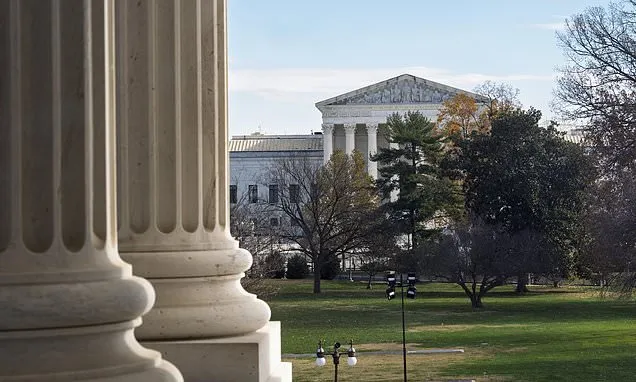The Supreme Court is hearing arguments Wednesday in just its second major transgender rights case, which is a challenge to a Tennessee law that bans gender-affirming care for minors.
The justices' decision, not expected for several months, could affect similar laws enacted by another 25 states and a range of other efforts to regulate the lives of transgender people, including which sports competitions they can join and which bathrooms they can use.
The case is coming before a conservative-dominated court after a presidential election in which Donald Trump and his allies promised to roll back protections for transgender people.
"Four years ago, the court ruled in favor of Aimee Stephens, who was fired by a Michigan funeral home after she informed its owner that she was a transgender woman. The court held that transgender people, as well as gay and lesbian people, are protected by a landmark federal civil rights law that prohibits sex discrimination in the workplace."
The Biden administration and the families and health care providers who challenged the Tennessee law are urging the justices to apply the same sort of analysis that the majority embraced in the case four years ago when it found that "sex plays an unmistakable role" in employers' decisions to punish transgender people for traits and behavior they otherwise tolerate.
The issue in the Tennessee case is whether the law violates the equal protection clause of the 14th Amendment, which requires the government to treat similarly situated people the same.
"Tennessee's law bans puberty blockers and hormone treatments for transgender minors," lawyers for families wrote. The lead lawyer, Chase Strangio of the American Civil Liberties Union, is notably arguing this case.
"That is sex discrimination," Solicitor General Elizabeth Prelogar wrote regarding how treatments must be considered based on minor's sex.
The state acknowledges that banned treatments can be prescribed for other reasons but rejects claims of sex discrimination. Instead, it argues lawmakers acted to protect minors from risks associated with "life-altering gender-transition procedures."
Tennessee Attorney General Jonathan Skrmetti stated: "The law draws a line between minors seeking drugs for gender transition and minors seeking drugs for other medical purposes."
While challengers invoke Bostock v. Clayton County ruling support from 2020, Tennessee relies on Dobbs decision precedent from 2022 regarding abortion issues returning power to states.
Legal filings debated over scrutiny levels applied; rational basis review often upholds laws while heightened scrutiny requires more substantial justification aligning with important objectives.
If heightened scrutiny applies here again then appeals may proceed further through courts accordingly examining these aspects closely once more...
